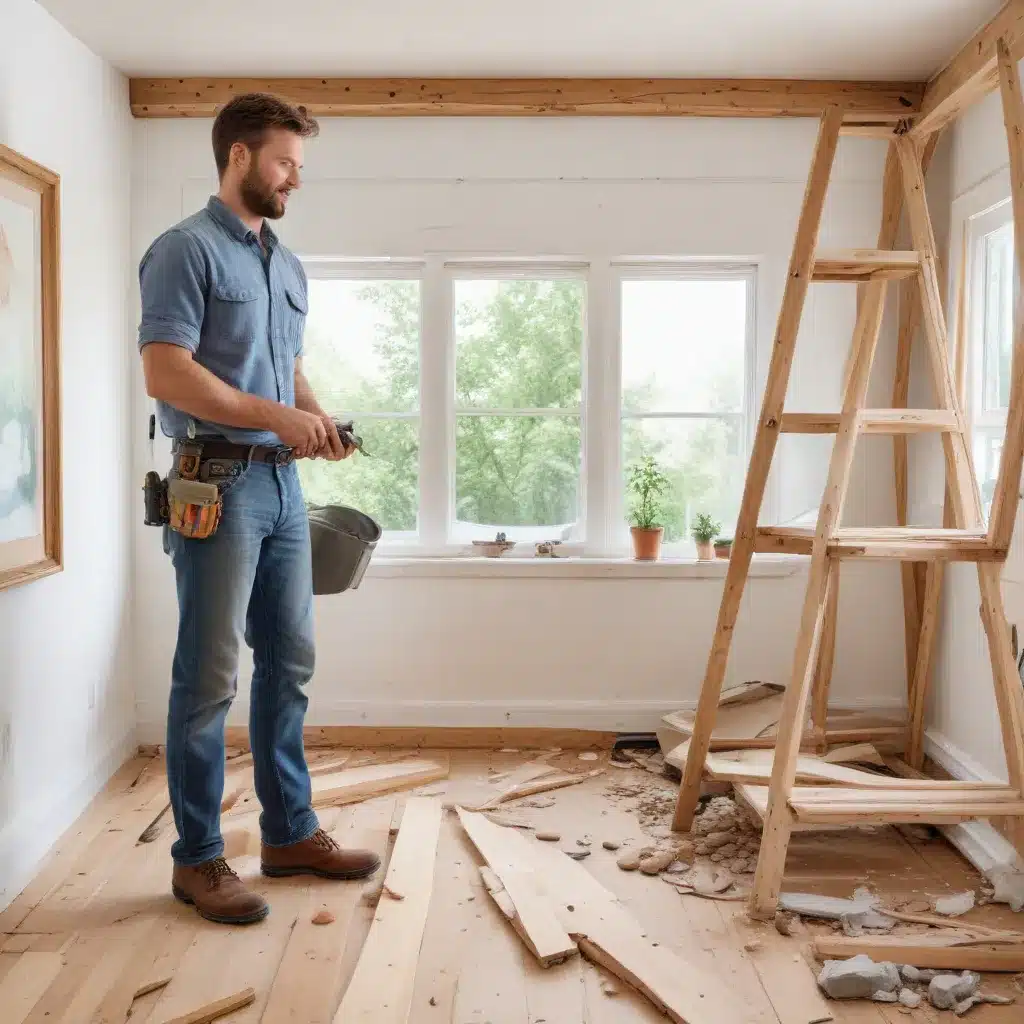
Renovating your home to be more eco-friendly can seem like a daunting task, especially when deciding whether to tackle projects yourself or hire professional contractors. As an experienced home improvement consultant, I’m here to guide you through the process and help you make informed decisions that align with your budget, sustainability goals, and family needs.
Eco-Friendly Renovation Options
DIY Approach
DIY renovations can be a budget-friendly way to incorporate eco-friendly features into your home, but they require careful planning and execution. The benefits of a DIY approach include greater control over material selection, the ability to learn new skills, and potential cost savings. However, DIY projects can also present unique challenges when it comes to eco-friendly upgrades.
One common pitfall for DIY-ers is underestimating the complexity of eco-friendly projects, such as proper insulation installation or the integration of renewable energy systems. Improper execution can lead to issues like poor ventilation, which can negatively impact indoor air quality and contribute to mold and mildew growth. Researching building science principles and techniques is crucial to ensure your DIY renovations deliver the desired energy-efficient and healthy home outcomes.
To overcome these challenges, focus on budget-friendly and straightforward eco-friendly strategies that align with your skill level. For example, you could start by replacing old windows with energy-efficient models, upgrading insulation in accessible areas, or swapping out light fixtures for LED bulbs. Gradually expanding your DIY capabilities over time can help you tackle more complex sustainable renovations in the future.
Hiring Professionals
While the DIY approach offers cost savings, engaging eco-friendly contractors can provide significant advantages for your renovation project. Experienced sustainable design professionals have the expertise to navigate the complexities of green building techniques, ensuring your home upgrades are not only visually appealing but also highly functional and environmentally responsible.
When hiring eco-friendly contractors, look for those who specialize in renewable energy systems, green building certifications, and a proven track record of successful sustainable renovations. Evaluate their credentials, such as LEED (Leadership in Energy and Environmental Design) accreditation or membership in organizations like the National Association of the Remodeling Industry (NARI) or National Kitchen and Bath Association (NKBA). These designations indicate a contractor’s commitment to eco-friendly practices and up-to-date knowledge of the latest green building technologies and trends.
Collaborating with sustainable renovation experts can also help you identify innovative energy-efficient solutions, such as geothermal heating and cooling systems or solar photovoltaic panels, that may have seemed out of reach for a DIY project. Their guidance can ensure your home upgrades not only align with your environmental values but also provide long-term cost savings and increased property value.
Sustainable Material Considerations
When planning your eco-friendly renovation, the selection of building materials is a critical factor in minimizing your environmental impact. Renewable and recycled materials, as well as those with low volatile organic compound (VOC) emissions, are essential for creating a healthy home environment.
Eco-friendly building materials like bamboo, reclaimed wood, cork, and recycled glass tiles can add visual interest and character to your space while reducing the embodied carbon associated with traditional construction materials. Additionally, Energy Star-certified appliances, low-flow plumbing fixtures, and non-toxic paints and finishes can contribute to your home’s overall sustainability.
It’s important to consider the lifecycle of the materials you choose, evaluating their durability, maintenance requirements, and end-of-life disposal. Materials with high recycled content or that can be easily recycled or repurposed at the end of their useful life are ideal for minimizing waste and environmental impact.
Energy-Efficient Upgrades
Improving your home’s energy efficiency is a crucial aspect of eco-friendly renovations. Upgrading insulation and weatherproofing your home can have a significant impact on your energy consumption and utility bills.
Carefully selecting insulation with a high R-value (a measure of thermal resistance) can dramatically improve your home’s thermal performance, reducing the need for extensive heating and cooling. Complementing your insulation upgrade with proper air sealing and ventilation strategies can further enhance your home’s energy efficiency.
Integrating renewable energy sources, such as solar photovoltaic (PV) systems or geothermal heating and cooling, can also significantly reduce your home’s carbon footprint and energy costs in the long run. These technologies, combined with energy-efficient appliances and smart home features, can transform your home into a sustainable and self-sufficient living space.
Project Planning and Budgeting
Embarking on an eco-friendly renovation requires careful planning and budgeting to ensure your project aligns with your environmental goals and financial constraints. Start by clearly defining your renovation objectives, prioritizing eco-friendly features that are most important to you and your family.
When establishing your renovation budget, consider not only the upfront costs but also the long-term savings and increased property value that sustainable upgrades can provide. Explore financing options, such as green home loans, energy-efficiency rebates, and tax incentives, which can help offset the initial investment in eco-friendly features.
By striking a balance between your environmental values and your financial realities, you can create a renovation plan that delivers both immediate and lasting benefits for your home and the planet.
Navigating the world of eco-friendly renovations can be a rewarding but complex journey. Whether you choose to tackle projects yourself or collaborate with sustainable design professionals, the key is to prioritize long-term sustainability, energy efficiency, and healthy home principles. By making informed decisions and considering the lifecycle of your renovation choices, you can transform your living space into a green oasis that aligns with your personal and environmental values.
For more inspiration and resources, I encourage you to explore the Reluctant Renovator website, where you’ll find a wealth of information on budget-friendly projects, family-friendly designs, and the latest eco-friendly trends in home improvement. Happy renovating!



